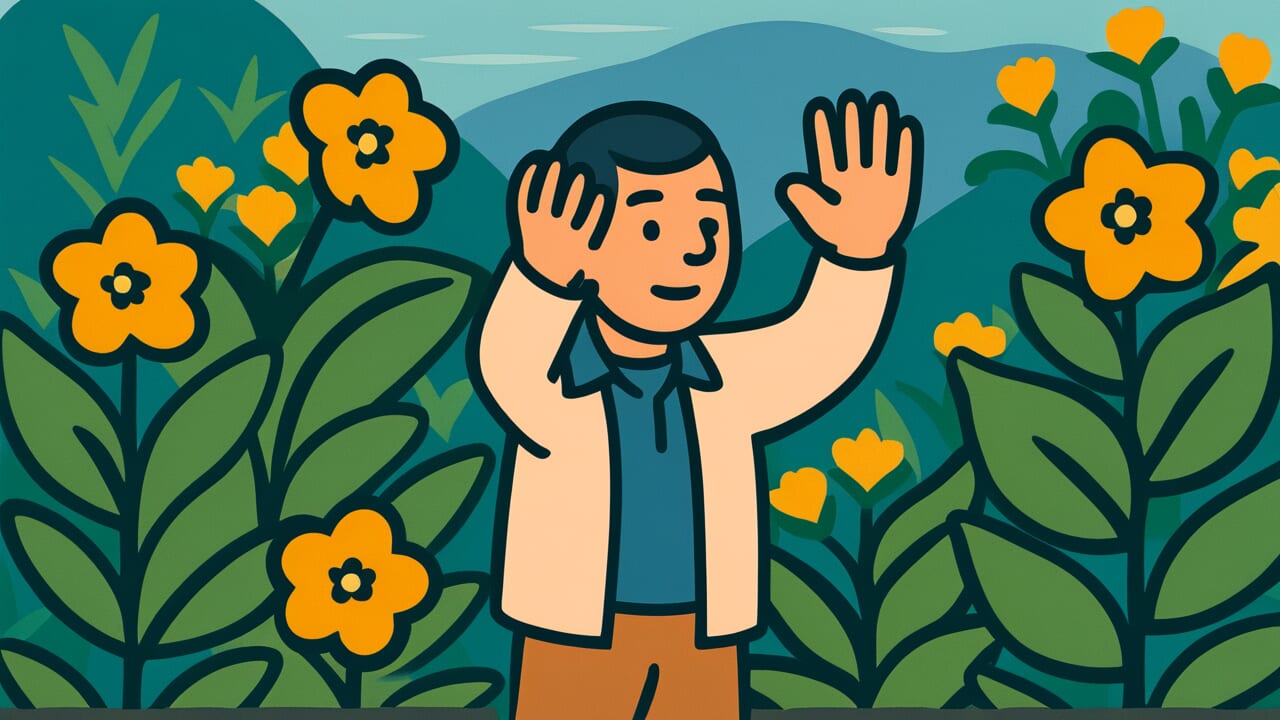How to Read “Neither picking the flowers nor taking the fruit”
Hana mo orazu mi mo torazu
Meaning of “Neither picking the flowers nor taking the fruit”
“Neither picking the flowers nor taking the fruit” is a proverb that describes a state where you gain no results and obtain nothing.
This proverb is used when someone had opportunities but ended up getting nothing. It expresses a double failure.
You missed both the pleasure of picking flowers and the benefit of taking fruit.
People use this saying when someone fails to make the most of a good opportunity. It applies when a half-hearted attitude leads to empty hands.
It also fits situations where indecisiveness causes you to lose everything.
In business and relationships, this expression laments situations where you couldn’t grab the chances in front of you. You end up with nothing to show for your efforts.
Today, people use it to point out when inaction leads to gaining nothing. It also describes situations where half-hearted involvement produces no results.
Origin and Etymology
No clear written records explain the origin of this proverb. However, the structure of the phrase offers interesting insights.
“Picking flowers” and “taking fruit” represent two ways humans interact with plants at different growth stages. Flowers bloom in spring and delight the eyes with their beauty.
Fruit ripens in autumn and provides practical value as food.
Flowers symbolize spiritual joy through appreciation. Fruit represents material benefit through harvest.
In Japanese farming culture, plant growth cycles connected closely with daily life. The culture of admiring flowers and the practice of harvesting crops both ran deep in Japanese living.
This proverb likely emerged from such everyday experiences.
The choice of verbs “pick” and “take” is also meaningful. Both express active efforts to obtain something.
The negative form “zu” cancels these actions, emphasizing the state of gaining nothing.
This proverb expresses double failure through a familiar subject: plants. You gain neither spiritual joy nor material benefit.
It showcases Japanese sensibility in capturing life’s lessons through nature.
Usage Examples
- That business negotiation ended with neither picking the flowers nor taking the fruit because I was too cautious
- He keeps missing job change opportunities and remains in a state of neither picking the flowers nor taking the fruit
Universal Wisdom
The proverb “Neither picking the flowers nor taking the fruit” has been passed down because it contains deep insights about human action and results.
Life presents moments when opportunities appear before us. But seizing those opportunities requires decision and action.
This proverb teaches a harsh reality: opportunities never come to those who just wait.
What’s interesting is that this proverb doesn’t say “failed.” Instead, it says “gained nothing.”
Failure at least involves the action of trying.
But neither picking the flowers nor taking the fruit shows you didn’t even try. Or you only engaged half-heartedly.
Why do people fail to grab opportunities right in front of them? Fear, hesitation, excessive caution.
Or being too greedy and aiming for both, only to lose everything.
This proverb captures such human weaknesses and psychology.
Our ancestors knew something important. In life, we regret most not what we tried and failed at, but what we never attempted.
The emptiness of gaining nothing leaves the deepest pain in our hearts.
That’s why this proverb has been passed down through generations. It serves as both warning and self-reflection across time.
When AI Hears This
When animals search for food, they face a problem: how long should they stay at the current feeding spot?
The marginal value theorem in ecology mathematically proves they should move when efficiency drops below the environmental average.
For example, when birds eat berries, they find them easily at first. But gradually, searching takes more time.
The optimal moment to move is where this “declining foraging efficiency curve” intersects with the environmental average.
The person in this proverb keeps missing this optimal point. When flowers bloom, they don’t pick them because “they’re not fruit yet.”
When fruit begins forming, they postpone because “it needs to ripen more.”
Ecologically, this is an inefficient behavior pattern. They cling to the same spot even after foraging efficiency passes its peak.
What’s interesting is that wild animals rarely make this mistake.
Evolution has weeded out individuals who miss optimal timing through natural selection.
The uniquely human problem is the cognitive bias of pursuing “perfect fruit” that doesn’t exist. Animals simply compare “current efficiency” with “average efficiency.”
But humans overestimate future expected value.
This proverb reveals an irony: humans alone forget the survival strategy that 3.8 billion years of life acquired. That strategy is “move on when things are good enough.”
Lessons for Today
This proverb teaches modern people the importance of taking action. If you keep waiting for the perfect timing, that moment may never come.
Modern society overflows with choices. That’s why we hesitate and hold back.
Before we know it, time passes and we’ve gained nothing.
Career changes, starting businesses, relationships, learning. In any situation, seeking perfection too much stops us from taking that first step.
We end up neither picking the flowers nor taking the fruit.
What matters is grabbing something, even if it’s small. Even just the flowers, or just the fruit.
If you can obtain something, that’s not zero. New developments grow from there.
The opportunity in front of you might exist only in this moment. Even if it’s not perfect, even if you feel anxious, have courage to take one step forward.
That courage will bring you fulfilling experiences instead of empty regrets. If you’re hesitating, try moving first.
The key to escaping the state of gaining nothing is in your hands.



Comments